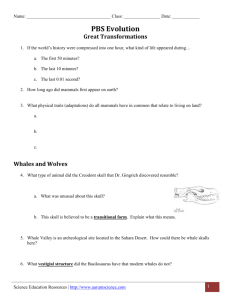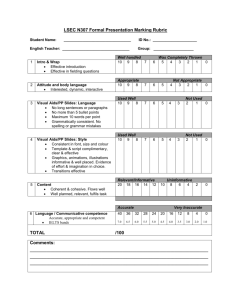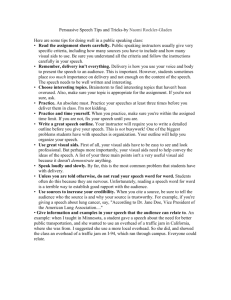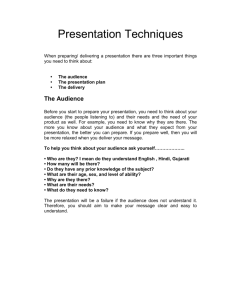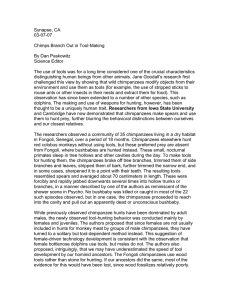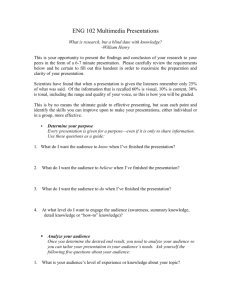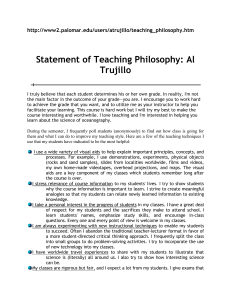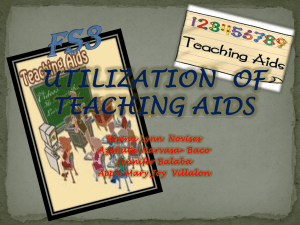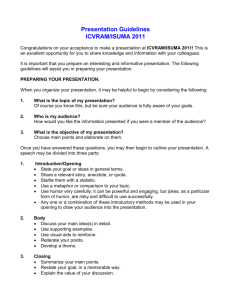File
advertisement
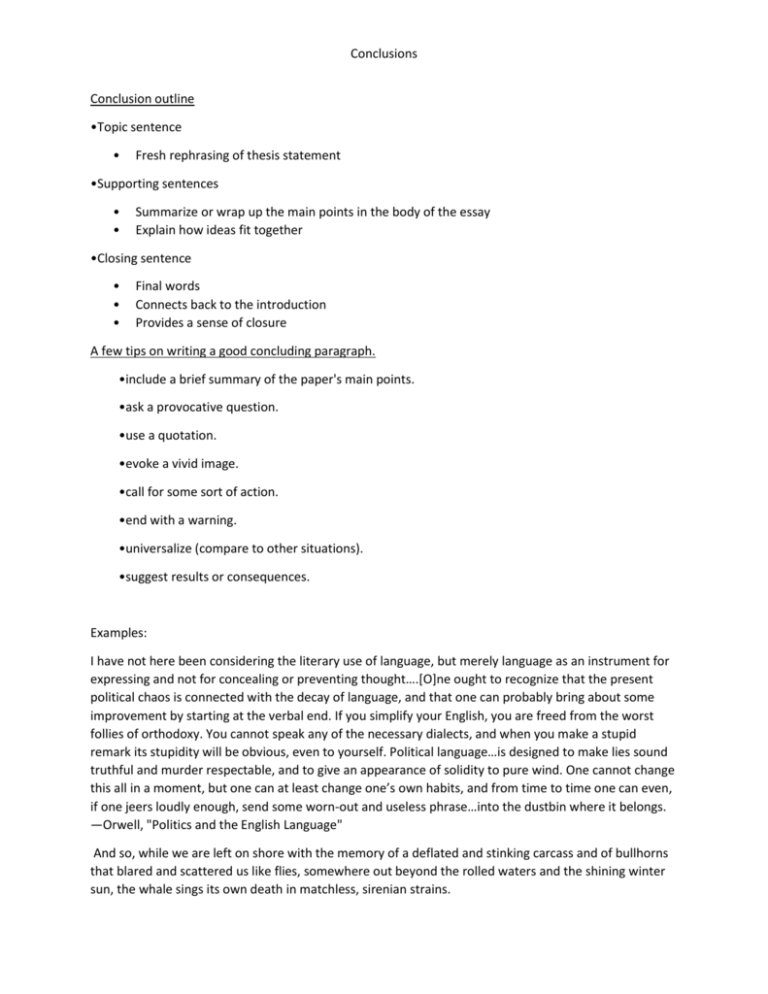
Conclusions Conclusion outline •Topic sentence • Fresh rephrasing of thesis statement •Supporting sentences • • Summarize or wrap up the main points in the body of the essay Explain how ideas fit together •Closing sentence • • • Final words Connects back to the introduction Provides a sense of closure A few tips on writing a good concluding paragraph. •include a brief summary of the paper's main points. •ask a provocative question. •use a quotation. •evoke a vivid image. •call for some sort of action. •end with a warning. •universalize (compare to other situations). •suggest results or consequences. Examples: I have not here been considering the literary use of language, but merely language as an instrument for expressing and not for concealing or preventing thought….[O]ne ought to recognize that the present political chaos is connected with the decay of language, and that one can probably bring about some improvement by starting at the verbal end. If you simplify your English, you are freed from the worst follies of orthodoxy. You cannot speak any of the necessary dialects, and when you make a stupid remark its stupidity will be obvious, even to yourself. Political language…is designed to make lies sound truthful and murder respectable, and to give an appearance of solidity to pure wind. One cannot change this all in a moment, but one can at least change one’s own habits, and from time to time one can even, if one jeers loudly enough, send some worn-out and useless phrase…into the dustbin where it belongs. —Orwell, "Politics and the English Language" And so, while we are left on shore with the memory of a deflated and stinking carcass and of bullhorns that blared and scattered us like flies, somewhere out beyond the rolled waters and the shining winter sun, the whale sings its own death in matchless, sirenian strains. Conclusions —Finch, "Very Like a Whale" For all we know, occasional viable crosses between humans and chimpanzees are possible. The natural experiment must have been tried very infrequently, at least recently. If such off-spring are ever produced, what will their legal status be? The cognitive abilities of chimpanzees force us, I think, to raise searching questions about the boundaries of the community of beings to which special ethical considerations are due, and can, I hope, help to extend our ethical perspectives downward through the taxa on Earth and upwards to extraterrestrial organisms, if they exist. —Sagan, "The Abstractions of Beasts" If AIDS is natural, then there is no message in its spread. But by all that science has learned and all that rationality proclaims, AIDS works by a mechanism—and we can discover it. Victory is not ordained by any principle of progress, or any slogan of technology, so we shall have to fight like hell, and be watchful. There is no message, but there is a mechanism. —Gould, "The Terrifying Normalcy of AIDS"

